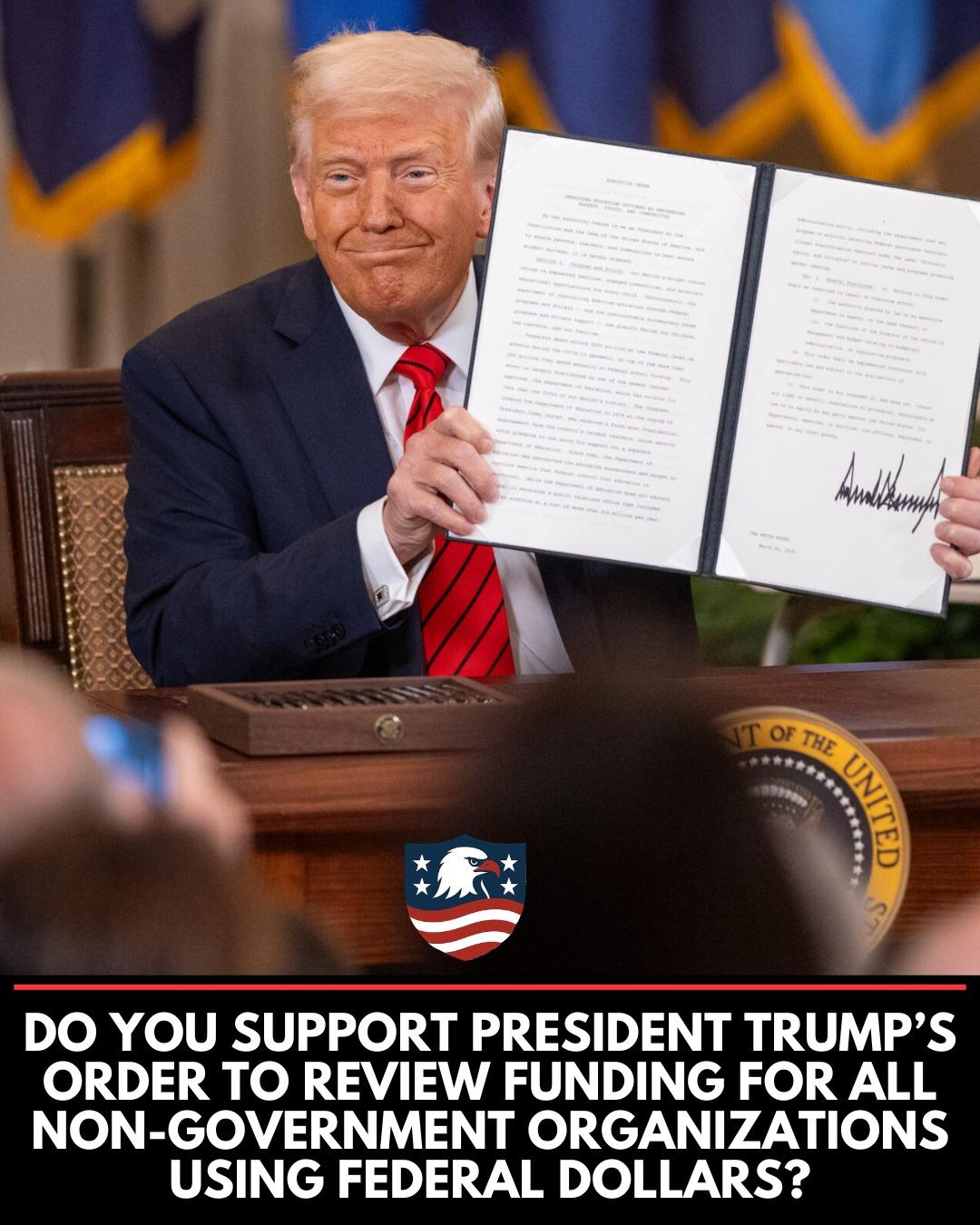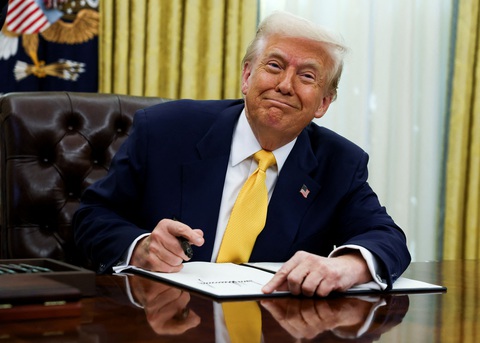President Donald Trump’s recent executive order, signed on August 7, 2025, has ignited a firestorm of debate across the United States. The directive, titled “Improving Oversight of Federal Grantmaking,” mandates a sweeping review of federal funding to all non-governmental organizations (NGOs), with the stated goal of ensuring taxpayer dollars align with “American interests” and the administration’s priorities. But here’s the bombshell: this move could defund thousands of nonprofits— from homeless shelters to women’s health clinics—under the vague claim they “undermine national security.” Is this a bold stand for fiscal responsibility, or a chilling assault on free speech and civil society?

The executive order demands that federal agencies halt new funding opportunities until senior political appointees—handpicked by Trump—vet every grant. These appointees are tasked with ensuring grants serve the “national interest,” a term so broad it could mean anything from cutting programs for immigrants to silencing environmental advocacy. The order also introduces “termination-for-convenience” clauses, allowing agencies to pull funding from existing grants at any time if they’re deemed misaligned with Trump’s agenda. This unprecedented oversight has sent shockwaves through the nonprofit sector, with critics warning it could cripple organizations that serve the most vulnerable Americans.
Imagine a local food bank, tirelessly feeding families, suddenly losing its federal grant because its mission doesn’t fit Trump’s vision. Or a domestic violence shelter, already stretched thin, facing closure because its advocacy for survivors is labeled “divisive.” According to the Urban Institute, nearly two-thirds of nonprofits rely on government grants, with 20% depending on them for over half their revenue. The National Council of Nonprofits estimates that 1.5 million NGOs, from healthcare providers to election watchdogs, could be affected. This isn’t just bureaucracy—it’s a potential death sentence for countless community lifelines.
Supporters of the order argue it’s a long-overdue correction. They point to examples of alleged waste, like grants funding “drag shows in Ecuador” or “critical race theory training,” as cited in a White House fact sheet. They claim unelected bureaucrats have funneled billions into projects that clash with American values, including research at a Wuhan lab linked to COVID-19 or AI-powered censorship tools funded by the National Science Foundation. Trump’s base cheers this as a strike against “woke” agendas, insisting taxpayer money should prioritize Americans first. The order’s push for plain-language funding announcements and merit-based awards, they say, will level the playing field for smaller organizations over elite universities and well-connected NGOs.

But here’s where it gets murky—and downright alarming. The order’s vague language opens the door to abuse. What exactly does “undermine the national interest” mean? Legal experts, like NYU’s Nadine Strossen, warn this mirrors tactics used by authoritarian regimes in China and Russia, where dissent is silenced under the guise of national security. The Supreme Court has ruled that denying funding based on an organization’s message violates the First Amendment, as seen in a 2013 case against the Alliance for Open Society. Yet Trump’s directive risks doing just that, potentially targeting NGOs based on their advocacy for issues like reproductive rights, LGBTQ+ equality, or climate change. A coalition of progressive groups, including Oxfam America and the AFL-CIO, has already condemned the order as a “partisan loyalty test” for charities.
The nonprofit sector is reeling. Diane Yentel, CEO of the National Council of Nonprofits, called the move a “troubling attack” that could “cost lives” by gutting programs for housing, healthcare, and human trafficking prevention. A coalition led by Yentel has already sued the administration, securing a temporary restraining order against an earlier funding freeze in January 2025. But with Trump’s latest order, the stakes are higher. Nonprofits are now scrambling to assess their grants, fearing sudden terminations that could bankrupt them overnight. The uncertainty is paralyzing—how do you plan when the rug could be pulled at any moment?
On social media, the reaction is explosive. Threads is ablaze with hashtags like #TrumpDefunds and #SaveOurNonprofits, as users debate whether this is a patriotic purge or a dictatorial overreach. Some posts claim Trump is targeting “leftist” NGOs to consolidate power, while others praise him for reining in “globalist” waste. The order’s lack of specificity fuels the chaos—without naming specific NGOs, it leaves everyone guessing who’s next. This ambiguity is a feature, not a bug, keeping nonprofits on edge and the public polarized.

The economic ripple effects could be staggering. Nonprofits employ millions and drive community services that governments often can’t. If funding dries up, local economies could tank, and vulnerable populations—think veterans, children, or the homeless—will bear the brunt. Yet the administration shows no signs of slowing down. Trump’s memo on February 6, 2025, doubled down, directing agencies to align funding with his priorities, from immigration crackdowns to dismantling DEI programs. The message is clear: conform or lose everything.
So, is this about saving taxpayer dollars or settling political scores? The truth likely lies in the gray zone, but one thing is certain: Trump’s order has unleashed a storm that will reshape the nonprofit landscape. Will it purge waste or punish dissent? Only time will tell, but the fight is just beginning. Share your thoughts on Threads—because this debate is about to blow up





